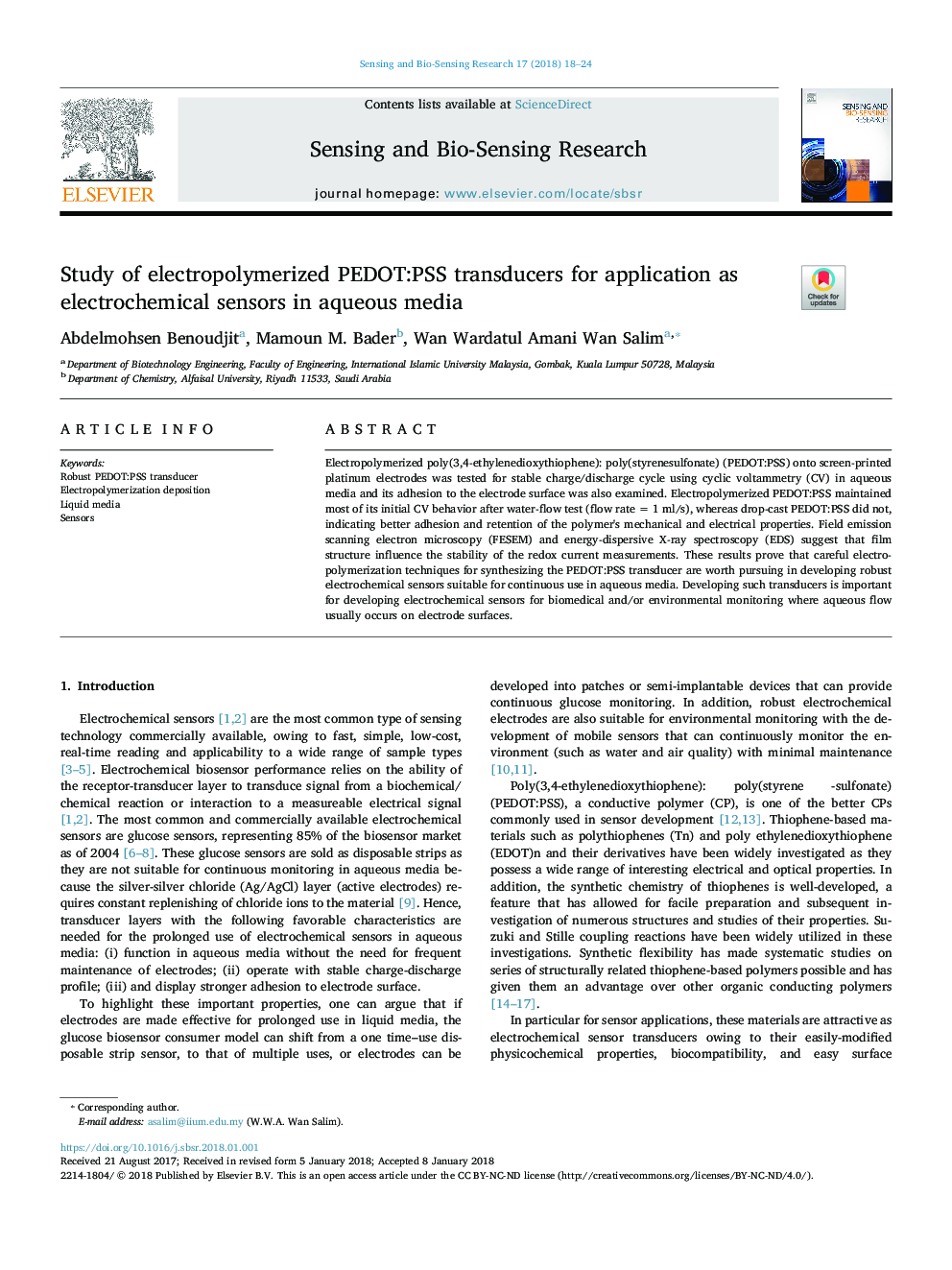| Article ID | Journal | Published Year | Pages | File Type |
|---|---|---|---|---|
| 7195953 | Sensing and Bio-Sensing Research | 2018 | 7 Pages |
Abstract
Electropolymerized poly(3,4-ethylenedioxythiophene): poly(styrenesulfonate) (PEDOT:PSS) onto screen-printed platinum electrodes was tested for stable charge/discharge cycle using cyclic voltammetry (CV) in aqueous media and its adhesion to the electrode surface was also examined. Electropolymerized PEDOT:PSS maintained most of its initial CV behavior after water-flow test (flow rate = 1 ml/s), whereas drop-cast PEDOT:PSS did not, indicating better adhesion and retention of the polymer's mechanical and electrical properties. Field emission scanning electron microscopy (FESEM) and energy-dispersive X-ray spectroscopy (EDS) suggest that film structure influence the stability of the redox current measurements. These results prove that careful electropolymerization techniques for synthesizing the PEDOT:PSS transducer are worth pursuing in developing robust electrochemical sensors suitable for continuous use in aqueous media. Developing such transducers is important for developing electrochemical sensors for biomedical and/or environmental monitoring where aqueous flow usually occurs on electrode surfaces.
Keywords
Related Topics
Physical Sciences and Engineering
Chemistry
Analytical Chemistry
Authors
Abdelmohsen Benoudjit, Mamoun M. Bader, Wan Wardatul Amani Wan Salim,
